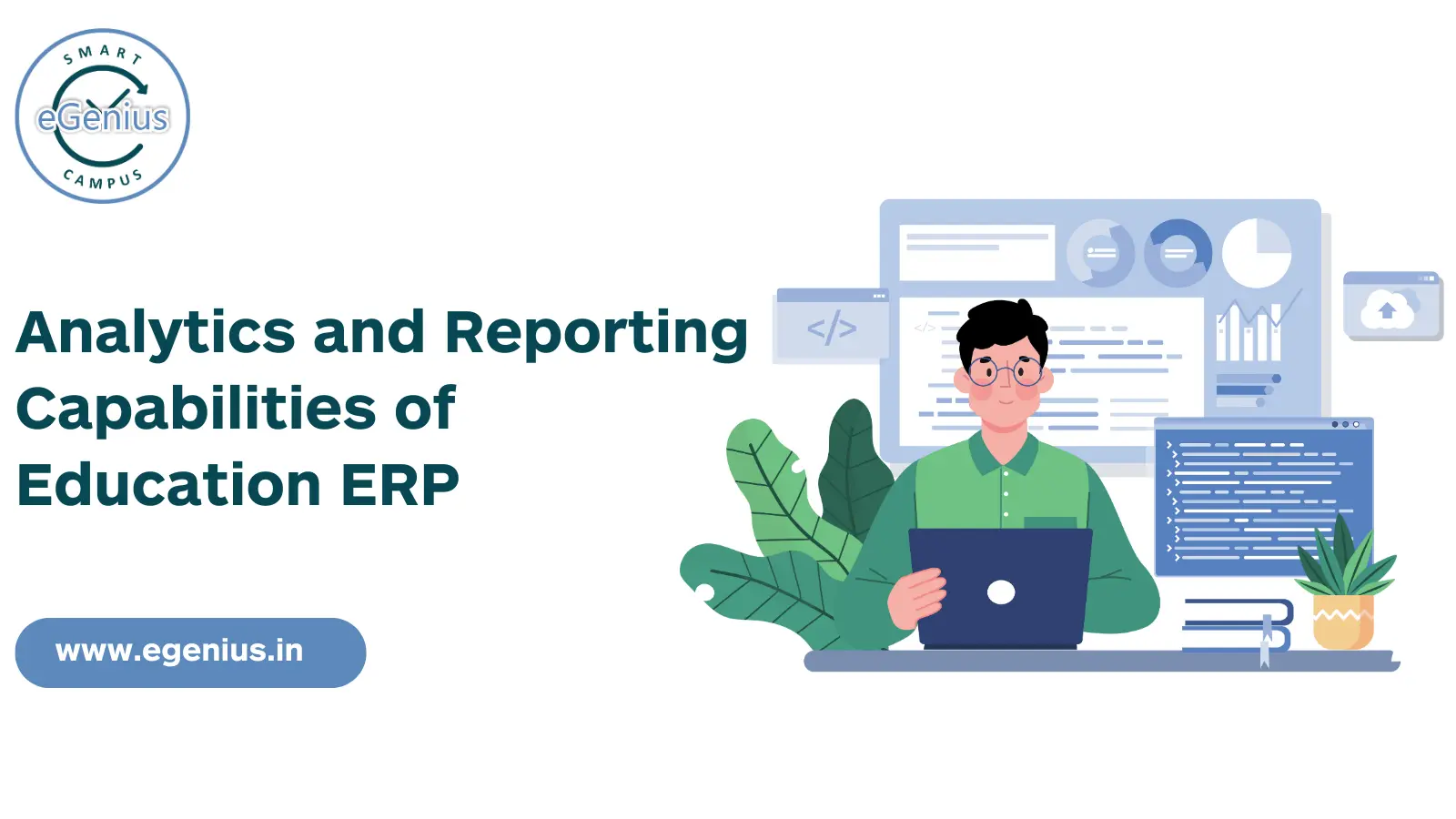In today’s data-driven world, the significance of analytics and reporting in Education ERP (Enterprise Resource Planning) systems cannot be overstated. These capabilities provide invaluable insights that enable educational institutions to streamline operations, enhance decision-making, and ultimately improve educational outcomes. This blog post delves into how analytics and reporting functionalities in Education ERP systems revolutionize school management, offering a comprehensive overview of their benefits and implementation.
Table of Contents
- The Role of Analytics in Education ERP
- Data-Driven Decision Making
- Performance Tracking
- Reporting Features in Education ERP
- Customizable Reports
- Real-Time Data Insights
- Historical Data Analysis
- Benefits of Advanced Analytics and Reporting
- Improved Administrative Efficiency
- Enhanced Student Outcomes
- Strategic Planning and Forecasting
- Implementing Analytics and Reporting in Education ERP
- Integration with Existing Systems
- Training and Support
The Role of Analytics in Education ERP
Data-Driven Decision Making
Education ERP systems are equipped with robust analytics tools that facilitate data-driven decision-making. By aggregating and analyzing various data points, these systems offer a comprehensive view of institutional performance. Schools and universities can leverage this data to make informed decisions regarding resource allocation, curriculum development, and policy changes.
Performance Tracking
One of the primary functions of analytics in Education ERP is performance tracking. Metrics related to student achievement, faculty performance, and operational efficiency are continuously monitored. This ongoing assessment allows institutions to identify trends, recognize areas of improvement, and implement strategies to address any shortcomings.
Reporting Features in Education ERP
Customizable Reports
This ERP systems are designed with customizable reporting features that cater to the unique needs of educational institutions. Administrators can generate reports tailored to specific criteria, such as academic performance, attendance rates, and financial transactions. This flexibility ensures that reports are relevant and useful for various stakeholders.
Real-Time Data Insights
Real-time data insights are another crucial feature of Campus ERP reporting. The ability to access up-to-the-minute information allows institutions to respond swiftly to emerging issues. For example, if a significant drop in attendance is detected, immediate action can be taken to address potential causes and prevent further declines.
Historical Data Analysis
Historical data analysis is a powerful tool offered by Education ERP systems. By examining past performance data, institutions can identify long-term trends and patterns. This historical perspective supports strategic planning and helps institutions anticipate future needs and challenges.
Learn how to choose an Educational ERP – Read here
Benefits of Advanced Analytics and Reporting
Improved Administrative Efficiency
The integration of advanced analytics and reporting capabilities into campus ERP systems leads to improved administrative efficiency. Automated reporting reduces the time and effort required to generate and analyze data. This efficiency allows administrators to focus on more strategic tasks, enhancing overall institutional productivity.
Enhanced Student Outcomes
Enhanced student outcomes are a direct benefit of utilizing analytics within Education ERP systems. By tracking and analyzing student performance data, educators can identify students who may need additional support. Early interventions and personalized learning plans can be implemented to address individual needs, leading to better academic results.
Strategic Planning and Forecasting
Strategic planning and forecasting are significantly enhanced by the advanced analytics features of Education ERP systems. Institutions can use historical data and predictive analytics to develop long-term strategies and make informed decisions about future investments, curriculum changes, and resource allocation.
Implementing Analytics and Reporting in Education ERP
Integration with Existing Systems
To fully leverage the analytics and reporting capabilities of ERP, seamless integration with existing systems is essential. Ensuring compatibility with other software and data sources allows for a comprehensive analysis of all relevant information. This integration streamlines data collection and ensures that reports are accurate and comprehensive.
Training and Support
Effective implementation of analytics and reporting functionalities also requires adequate training and support. Educational institutions must invest in training programs for staff to ensure they are proficient in using the ERP system’s analytical tools. Ongoing support and resources should be provided to address any technical issues or questions that may arise.
In summary, the analytics and reporting capabilities of Education ERP systems are transformative for educational institutions. By offering detailed insights into various aspects of school management, these systems empower administrators to make data-driven decisions, track performance, and plan strategically. The benefits of enhanced administrative efficiency, improved student outcomes, and strategic foresight underscore the importance of integrating advanced analytics into Education ERP systems. As educational institutions continue to embrace these technologies, the potential for growth and improvement becomes boundless.
Implementing robust analytics and reporting features in Education ERP systems is not just a trend but a crucial step towards achieving excellence in education management.
Experience the power of our Education ERP system with a free demo! See firsthand how our advanced analytics and reporting tools can transform your institution. Request your demo today!














